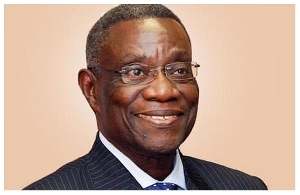The International Conference of the Tumekutana Presbyterian and Reformed Women leaders has been opened in Accra.
Tumekutana is a Swahili word which means "we have come together." It was adopted as a name for the gathering of African Presbyterian women during its inception because it suited the initiative that was being taken at the time.
The five-day conference, being attended by more than 140 members across the globe, is on the theme: "Freedom in Christ: from Slavery to Empowerment".
Mrs Veronica Muchiri, the Vice President of the African Presbyterian and Reformed Women, said the conference would discuss issues regarding human trafficking and look at economic exploitation that women went through, including sexual violence.
She said human trafficking was real and with the help of the scriptures, participants would speak against it as a way of helping to solve the problem.
In a speech read on his behalf, Professor Emmanuel Martey, Moderator of the Presbyterian Church, Ghana, said even though there were many women holding leadership positions on the continent, there were many more who had been forgotten such as the elderly, widows, and the less educated.
He challenged the participants to use the conference to advocate for the less privileged in society, especially women.
Prof. Martey also called on government to prioritise issues relating to the elderly, especially women, to promote their wellbeing.
Reverend Dr Nyambura Njoroge, Project Co-ordinator, World Council of Churches, said issues of slavery needed to be tackled with seriousness, as many people, especially women, were suffering from it.
She said the challenges confronting the continent were huge and called for creativity in addressing them.
In a speech read on her behalf, Nana Oye Lithur, the Minister of Gender, Children and Social Protection, said there were certain beliefs and cultural practices militating against African women, which needed to be condemned.
She urged participants of the conference to come out with solutions that would free victims of such unacceptable cultural practices.
Religion of Tuesday, 22 September 2015
Source: GNA
African Presbyterian Women's conference opens
 Presby Church logo
Presby Church logo














